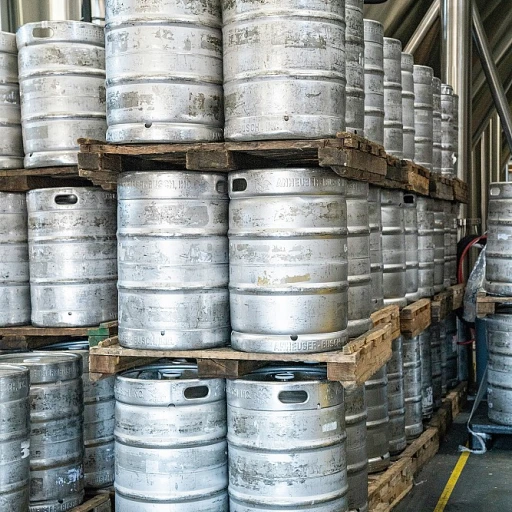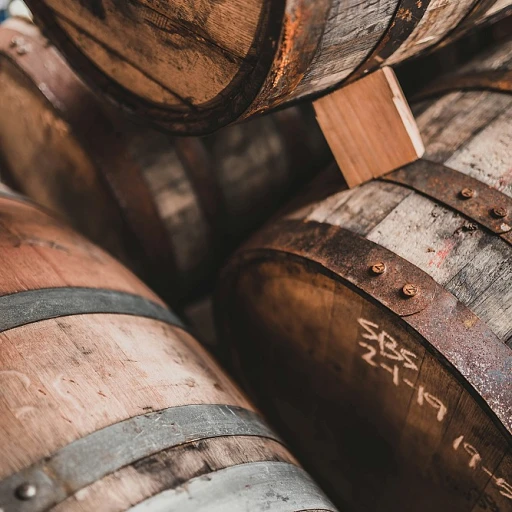
Sulfites in beer and other alcoholic drinks
Understanding what sulfites are
Sulfites are a group of sulfur-based compounds commonly used as preservatives in food and beverages. They help prevent spoilage and oxidation, which can affect taste and shelf life. In the context of alcoholic drinks, sulfites are most often associated with wine, but they can also be present in beer and spirits.
How sulfites end up in your pint
Beer can contain sulfites for two main reasons. First, they may occur naturally during the fermentation process. Second, some brewers add them intentionally to stabilize the beer and extend its freshness. However, the amount of sulfites in beer is generally much lower than in wine or certain ciders.
Comparing with other beverages
When you compare beer to other alcoholic drinks, you’ll notice that beer typically has lower sulfite levels. This is good news for those who are sensitive to sulfites, but it’s still important to check labels if you have concerns. For more details on the water and ingredients that go into your favorite brew, you might enjoy this guide on how much water goes into a beer.
Why are sulfites used in brewing?
How sulfites help brewers maintain beer quality
Sulfites are used in brewing mainly for their preservative and antioxidant properties. These compounds help prevent unwanted changes in flavor, color, and aroma that can occur when beer is exposed to oxygen or certain microbes. By limiting oxidation, sulfites help keep beer tasting fresh for longer periods, especially during storage and transportation.When are sulfites added during brewing?
Brewers may add sulfites at different stages of the brewing process, but it’s most common during packaging. This step helps protect the finished beer from spoilage and extends its shelf life. Some sulfites can also form naturally in small amounts during fermentation, but these levels are usually quite low compared to what’s added intentionally.Are all beers treated with sulfites?
Not all beers contain added sulfites. Many craft brewers avoid using them, relying instead on careful sanitation and modern brewing techniques to maintain quality. However, some larger breweries may use sulfites to ensure consistency across large batches and longer distribution chains. If you’re interested in how other beverages use sulfites or want to learn about unique brewing traditions, you might enjoy reading about Henry Weinhard root beer and its place in beverage history.Comparing sulfite levels: beer, wine, and spirits
How do sulfite levels in beer stack up against wine and spirits?
When considering sulfites in alcoholic beverages, it's helpful to compare beer with wine and spirits. Sulfites are commonly used as preservatives, but the amounts can vary greatly depending on the drink and production methods.
- Beer: Most beers contain very low levels of sulfites, especially compared to wine. Some craft beers may have almost none, while certain commercial brews might use small amounts for stability and shelf life. The natural brewing process often produces trace sulfites, but these are typically minimal.
- Wine: Wines, especially white and sweet varieties, usually have much higher sulfite concentrations. Winemakers often add sulfites to prevent oxidation and spoilage, resulting in levels that can be several times higher than those found in beer.
- Spirits: Distilled spirits like vodka, whiskey, and gin generally contain the lowest sulfite levels. The distillation process removes most sulfites, making these drinks a safer choice for those with sensitivities.
If you are considering setting up your own brewery, understanding how sulfite management fits into brewery installation and production is essential. Brewers can often control or minimize sulfite use, which is good news for people seeking lower-sulfite options.
For those with sulfite sensitivities, beer is often a gentler choice than wine, but always check labels or ask brewers about their practices. If you want to avoid sulfites altogether, some breweries now offer sulfite-free beers, as discussed in other sections of this article.
Sulfite sensitivity and adverse reactions
Understanding sulfite sensitivity
While most people can enjoy beer without any issues, a small percentage of individuals may be sensitive to sulfites. Sulfite sensitivity is more common in people with asthma, but it can affect anyone. Symptoms can range from mild to more severe, depending on the individual and the amount consumed.
- Mild reactions: These may include headaches, hives, or mild respiratory discomfort.
- Severe reactions: In rare cases, people may experience difficulty breathing, chest tightness, or even anaphylaxis. If you have a known sulfite allergy, it is important to be cautious with all foods and drinks that may contain these compounds.
How to recognize a reaction
If you notice symptoms such as wheezing, skin flushing, or stomach upset after drinking beer, sulfites could be the cause. However, it is important to remember that other ingredients in beer can also trigger similar symptoms. Consulting with a healthcare professional can help determine the exact cause and guide you on safe beverage choices.
Who should be cautious?
People with asthma, a history of allergies, or those who have previously reacted to foods containing sulfites should pay extra attention to beer labels and ingredient lists. While beer generally contains lower sulfite levels than wine, it is still wise to be informed, especially if you are sensitive.
Tips for finding low-sulfite or sulfite-free beer
How to choose beers with fewer sulfites
- Look for "unfiltered" or "unpasteurized" beers: These often have fewer added preservatives, including sulfites, since they are made with minimal processing.
- Seek out craft and small-batch breweries: Smaller breweries may use fewer additives and focus on traditional brewing methods, which can mean lower sulfite content.
- Check the label: While not all countries require sulfite labeling for beer, some do. If you see "contains sulfites" on the label, you know they are present.
- Opt for bottle-conditioned beers: These beers finish fermenting in the bottle and often skip chemical preservatives, relying on natural carbonation instead.
- Ask your local brewer: Don’t hesitate to reach out to breweries or taprooms. Many are transparent about their brewing process and can tell you if sulfites are used.
- Try organic beers: Organic certification often limits the use of chemical additives, including sulfites, making these beers a safer bet for those sensitive to them.
Other considerations for sensitive drinkers
- If you have a known sulfite sensitivity, always start with a small amount of any new beer to see how your body reacts.
- Remember that beer generally contains much lower sulfite levels than wine or some spirits, as discussed earlier in this article.
- Keep in mind that reactions can also be caused by other ingredients, such as gluten or certain grains. If you are unsure, consult with a healthcare professional.













